Ever found yourself ready to bake or fry, only to realize you’re fresh out of vegetable oil? No worries! Our guide to the best substitutes for vegetable oil is here to save the day.

Whether you’re eyeing a healthier option or simply need an alternative in a pinch, we’ve got you covered with a variety of kitchen swaps. From baking recipes to frying favorites, discover how to replace vegetable oil without sacrificing flavor or texture.
This treasure trove includes:
- Olive oil and coconut oil for heart-healthy alternatives
- Applesauce and banana puree for low-fat baking wonders
- Butter and ghee for a rich, savory twist
…and more!

Ideal for home cooks looking to experiment or anyone in need of a quick substitute, our suggestions will ensure your dishes remain delicious and your pantry stays versatile. Dive into our collection of vegetable oil alternatives and keep your culinary adventures exciting and varied, no matter what the recipe calls for.
Canola Oil
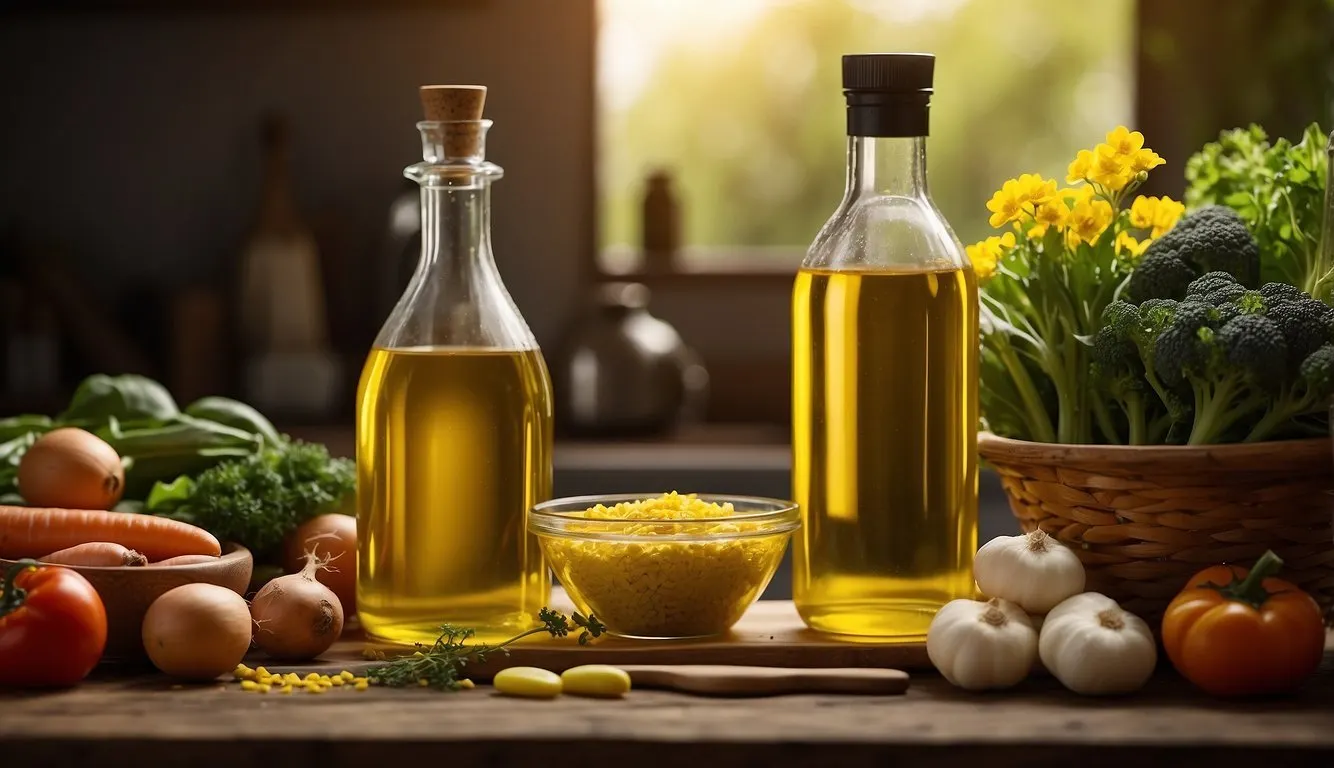
Canola oil is an excellent alternative to vegetable oil when you need a substitute. Derived from the rapeseed plant, it has a neutral flavor and high smoke point, making it perfect for sautéing and frying. Some suitable replacements for canola oil include:
- Vegetable oil
- Sunflower oil
- Safflower oil
Remember, when substituting, check the specific requirements of your recipe to ensure the best results. Don’t hesitate to switch it up and explore the benefits of different oil options in your cooking.
Corn Oil
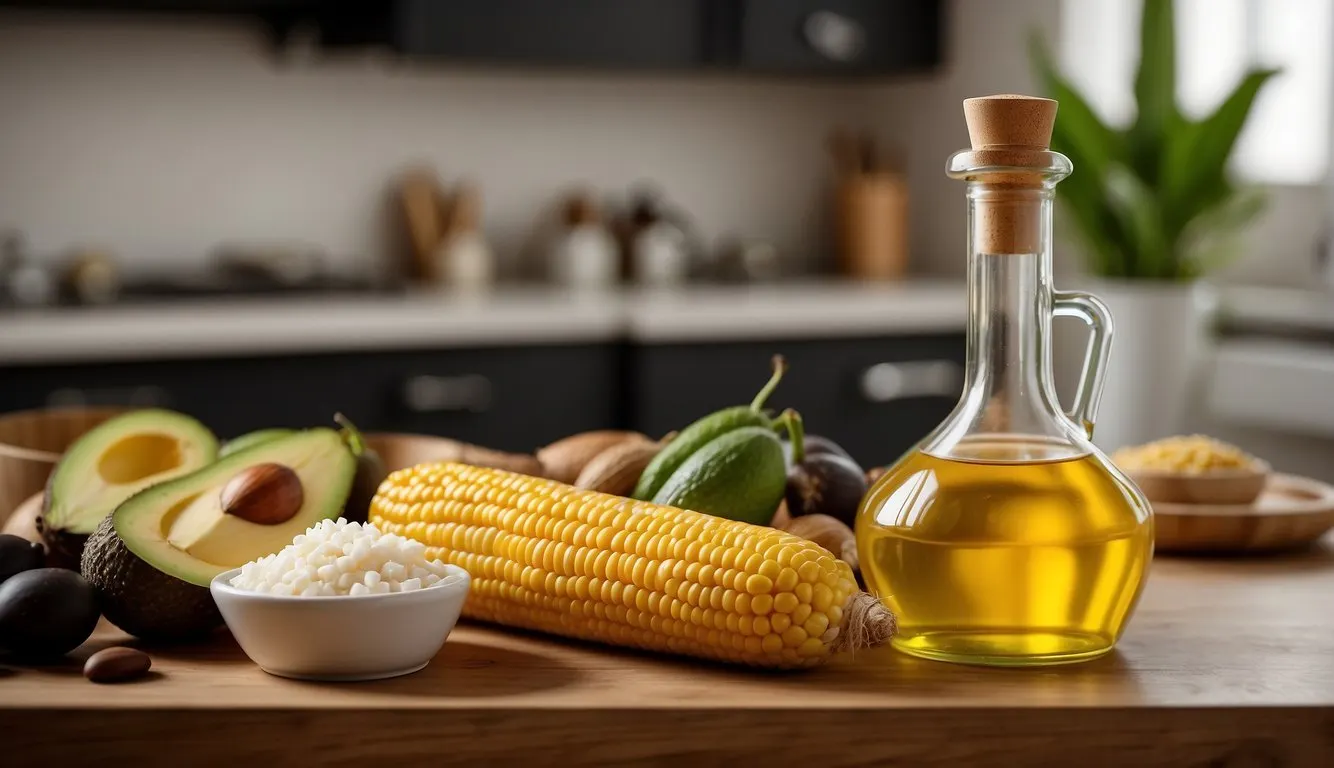
Corn oil is often used as a substitute for vegetable oil due to its similar properties and characteristics. It’s ideal for high-heat cooking methods, such as sauteing and deep-frying. However, if you’re looking for an alternative, consider options like peanut oil, tallow, or even clarified butter. For baking and roasting, try other cooking oils, butter, duck fat, or schmaltz. Remember to keep your cooking needs in mind when selecting an oil substitute.
Palm Oil
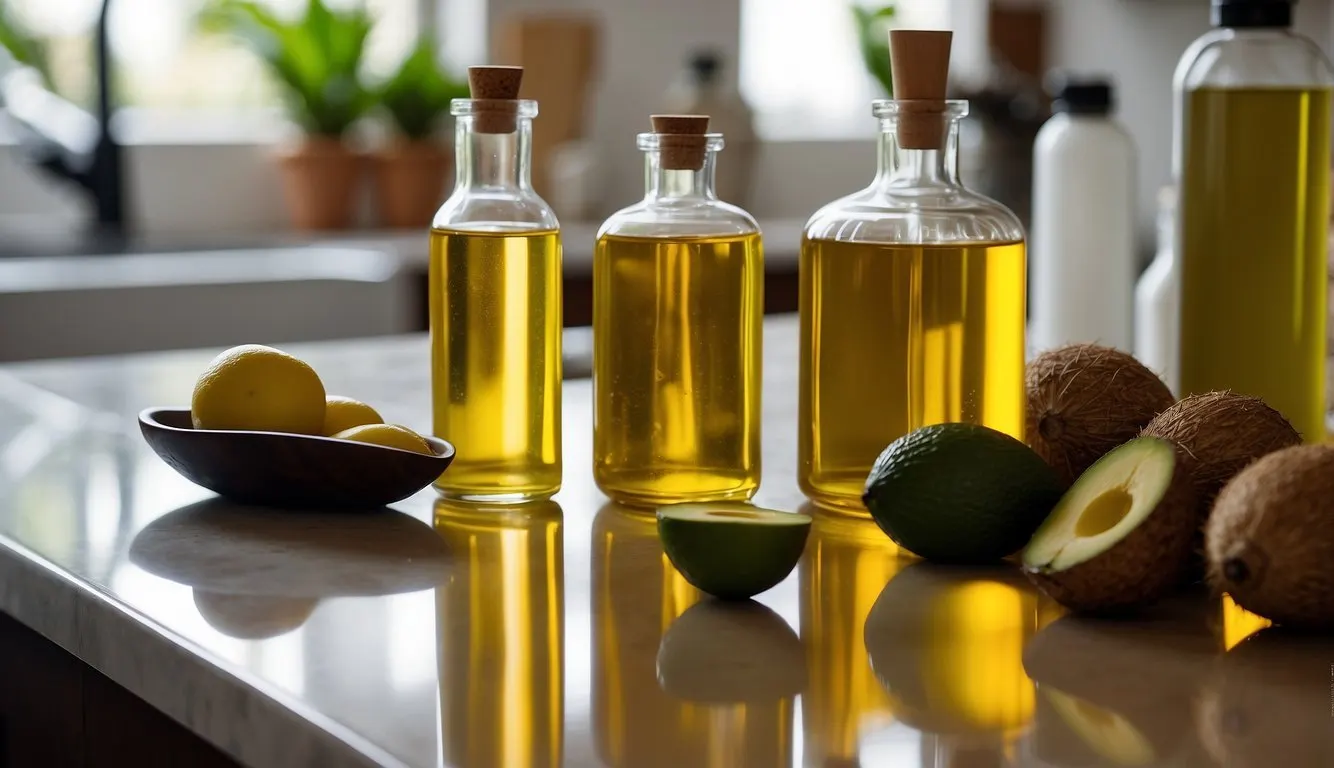
Palm oil is a popular substitute for vegetable oil, offering a mild flavor and high smoke point. This makes it suitable for high-heat cooking. While sustainable, note that it’s high in saturated fats. Peanut oil is a recommended alternative since it’s more sustainable, requires minimal water to grow, and maintains soil health by fixing nitrogen.
Soybean Oil

Soybean oil is another popular alternative to vegetable oil. It’s extracted from the seeds of the soybean plant, providing a neutral flavor and high smoke point. Use soybean oil in equal amounts as the vegetable oil called for in your recipe. Remember, soybean oil is an excellent option for frying, sautéing, and baking in your kitchen.
Peanut Oil
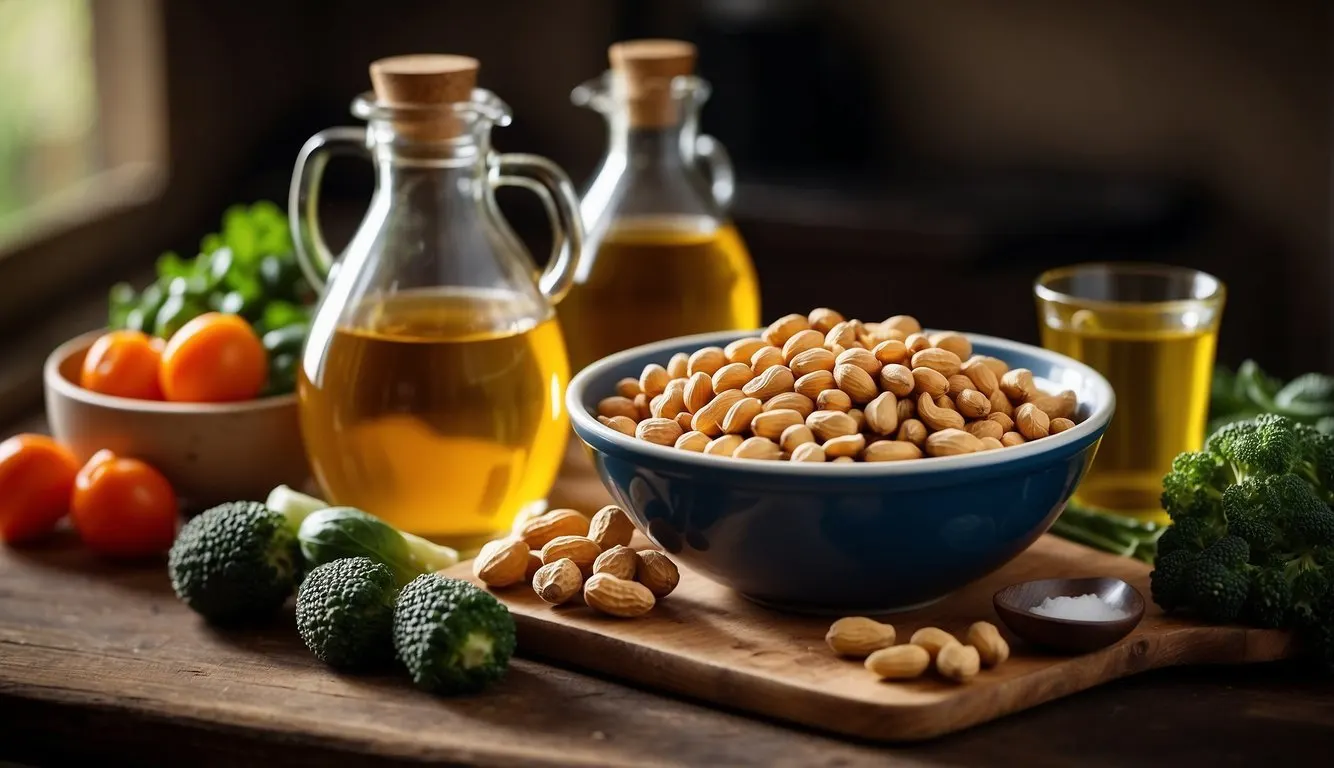
Peanut oil is a great substitute for vegetable oil due to its high smoke point and mild flavor. It’s suitable for various cooking techniques, such as sautéing, deep frying, and baking. Some excellent alternatives to peanut oil include canola oil, safflower oil, sunflower oil, and refined olive oil. Keep in mind that peanut oil may not be suitable for those with allergies.
Olive Oil
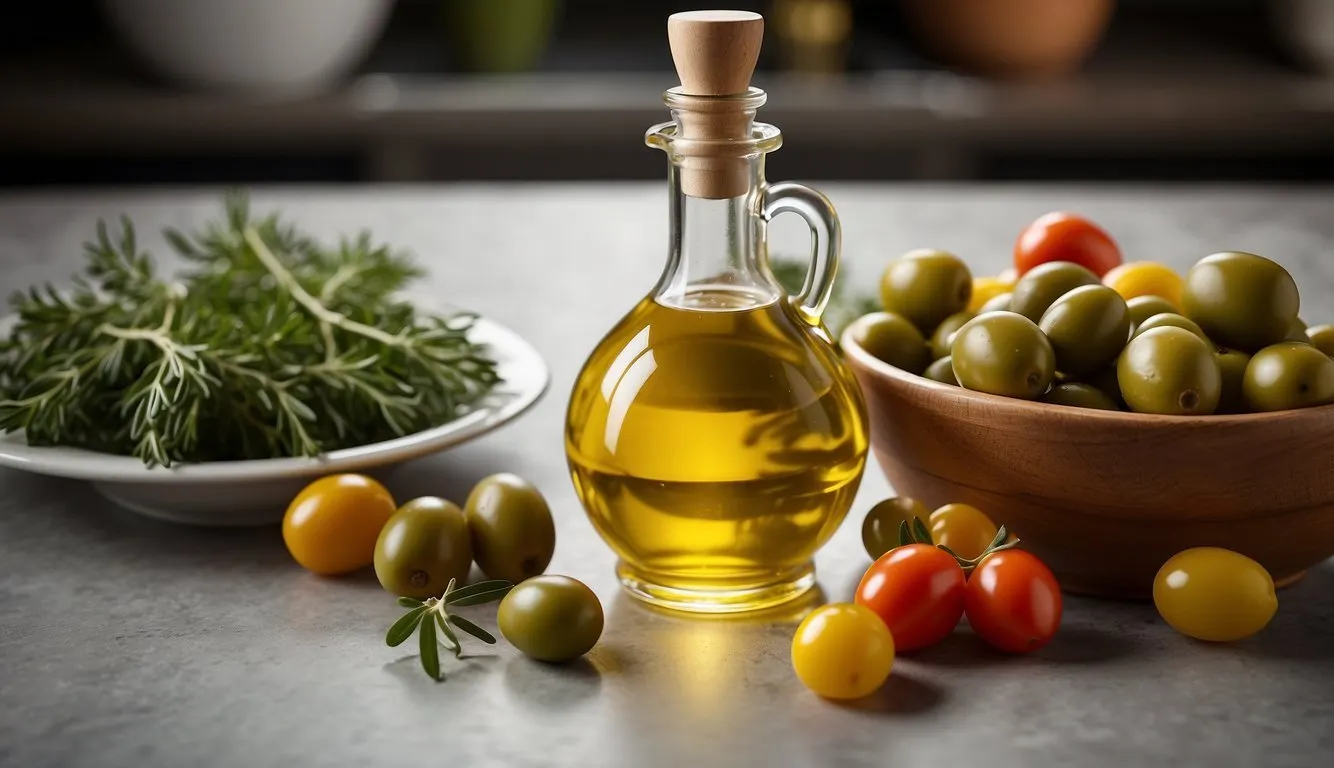
Olive oil can be a suitable substitute for vegetable oil in many cases. It offers unique culinary and health benefits. When substituting, use a 1:1 ratio. Keep in mind that olive oil has a lower smoke point (around 350°F), so it’s best suited for:
- Baking
- Marinades
- Light sautéing
Choose the right type of olive oil for your recipe, considering flavor profiles and smoke points, to ensure a successful substitution.
Coconut Oil
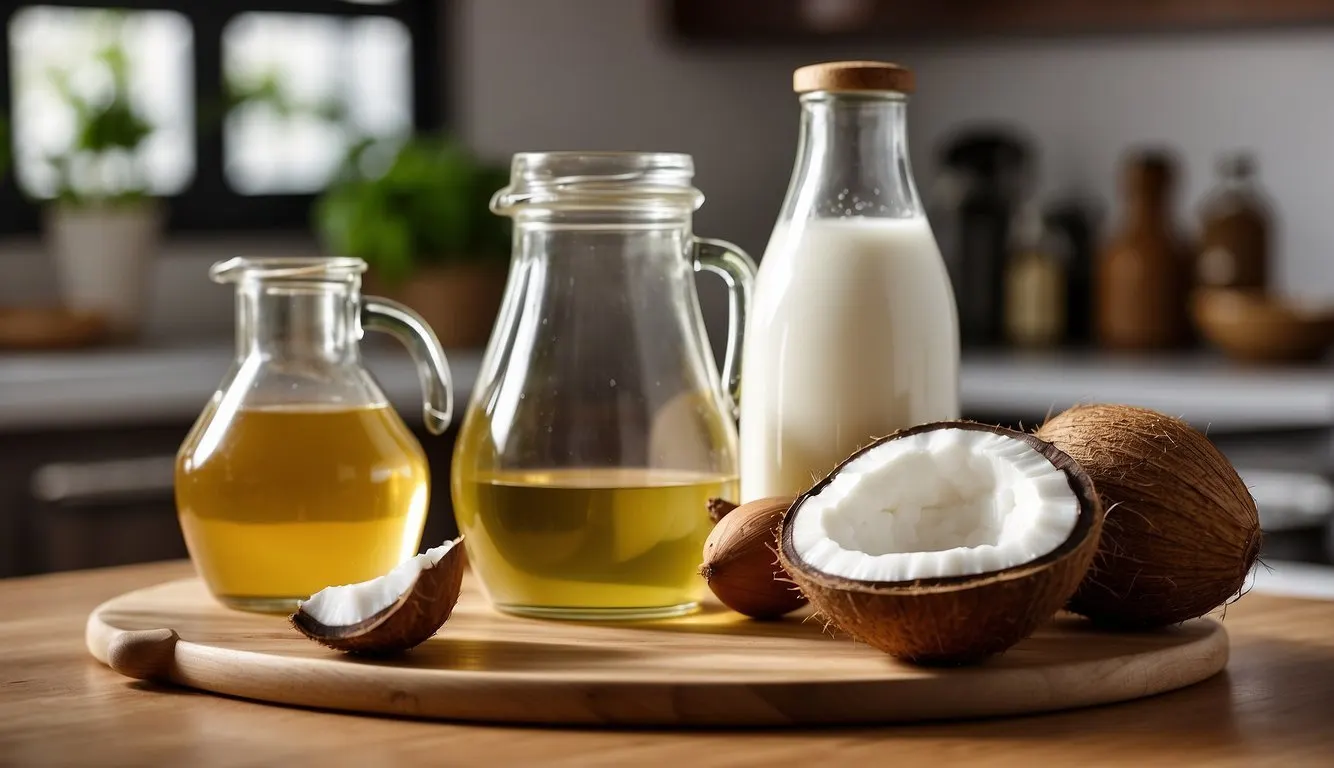
Coconut oil is a popular alternative to vegetable oil for your cooking and baking needs. You can easily swap coconut oil for vegetable oil using a 1:1 ratio. For example, if a recipe calls for 1 cup of vegetable oil, simply use 1 cup of coconut oil instead.
Remember to melt the coconut oil before using, as it solidifies at room temperature. Note that coconut oil adds a subtle, tropical flavor to dishes, which may or may not be desired.
Butter
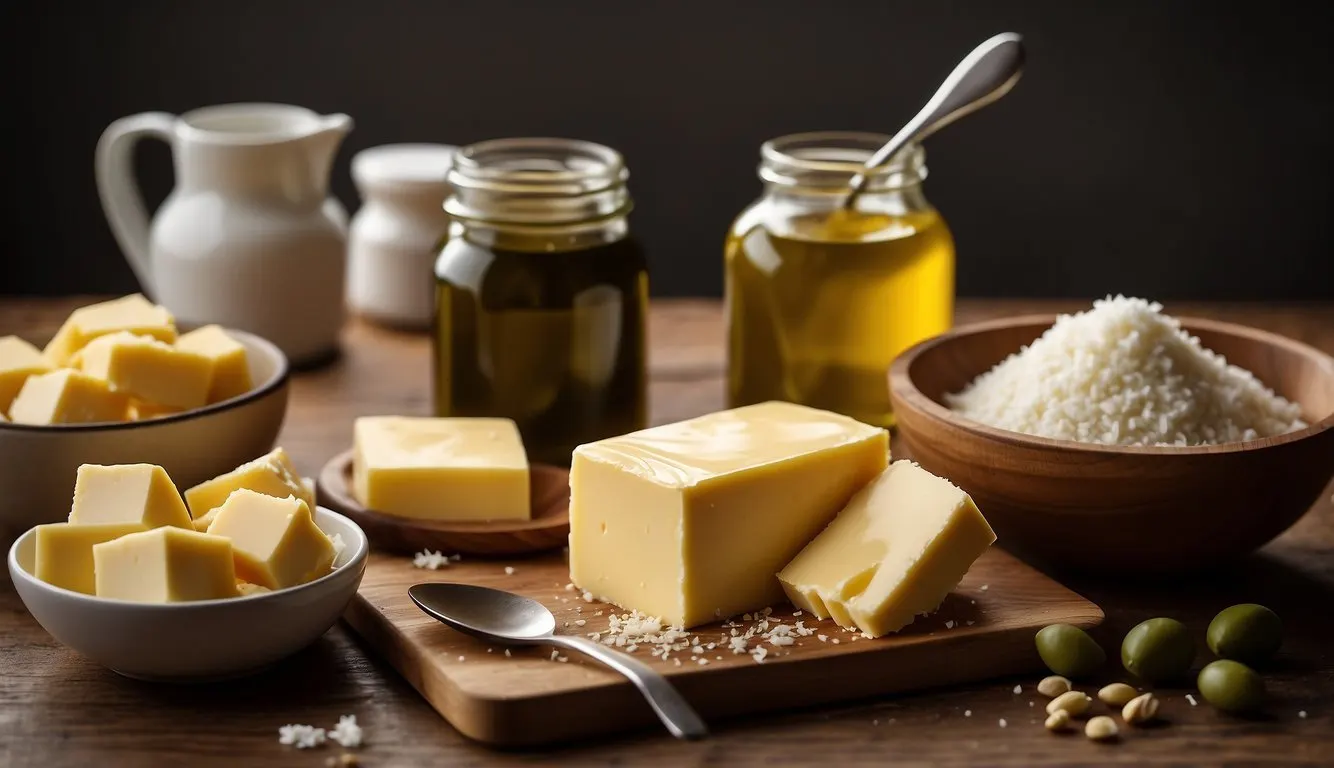
Butter makes a great substitute for vegetable oil in many recipes. To replace vegetable oil with butter, use a 1:1 ratio for stovetop sautéing. In baking, however, replace 1 cup of melted butter with ¾ cup of oil. This adjustment accounts for the water content in butter, ensuring the correct fat levels in your dish. Remember, butter adds a rich flavor, which can enhance the taste of your baked goods and sautéed dishes.
Applesauce
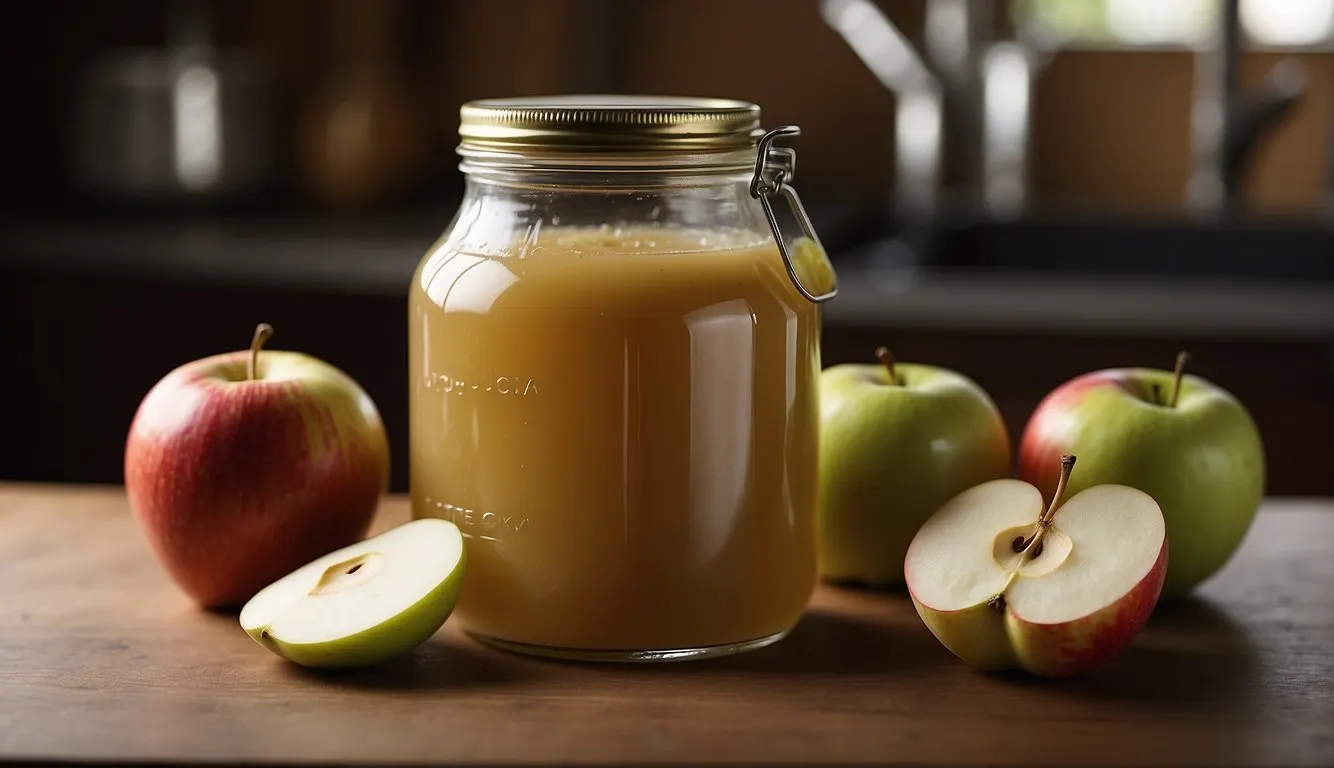
Applesauce is a popular substitute for vegetable oil in many baked goods. Not only does it add moisture, but it also reduces calories and fat, making it a healthier option. To substitute, use a 1:1 ratio of applesauce to oil. However, avoid using more than 1/4 cup of applesauce to prevent altering the texture of your recipe. Enjoy experimenting with this versatile ingredient in your next baking adventure!
Greek Yogurt

Greek yogurt can be a versatile and healthy alternative to vegetable oil in your cooking and baking. For every cup of oil, use three-quarters of a cup of yogurt. Choose plain or flavored yogurts, depending on the desired flavor. For lower calorie options, use non-fat or reduced-fat yogurt. Remember, keep the substitution simple and stick to the given proportions for optimal results.
Mayonnaise
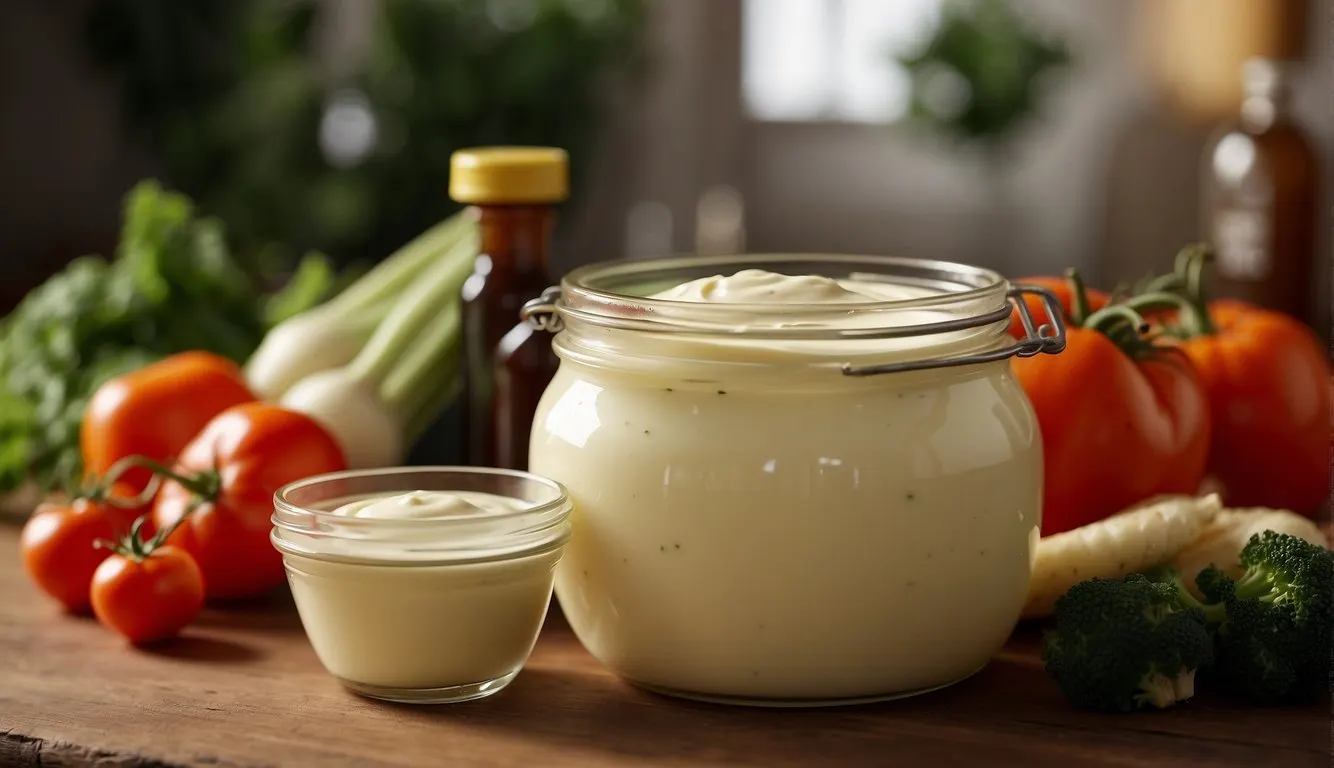
In your quest for vegetable oil substitutes, consider mayonnaise. A mix of eggs, oil, and vinegar, mayo works well in place of oil, especially in baking. This adds a homemade taste, as mayo includes eggs and oil. When substituting, simply replace the oil with equal parts mayonnaise.
Refined Avocado Oil
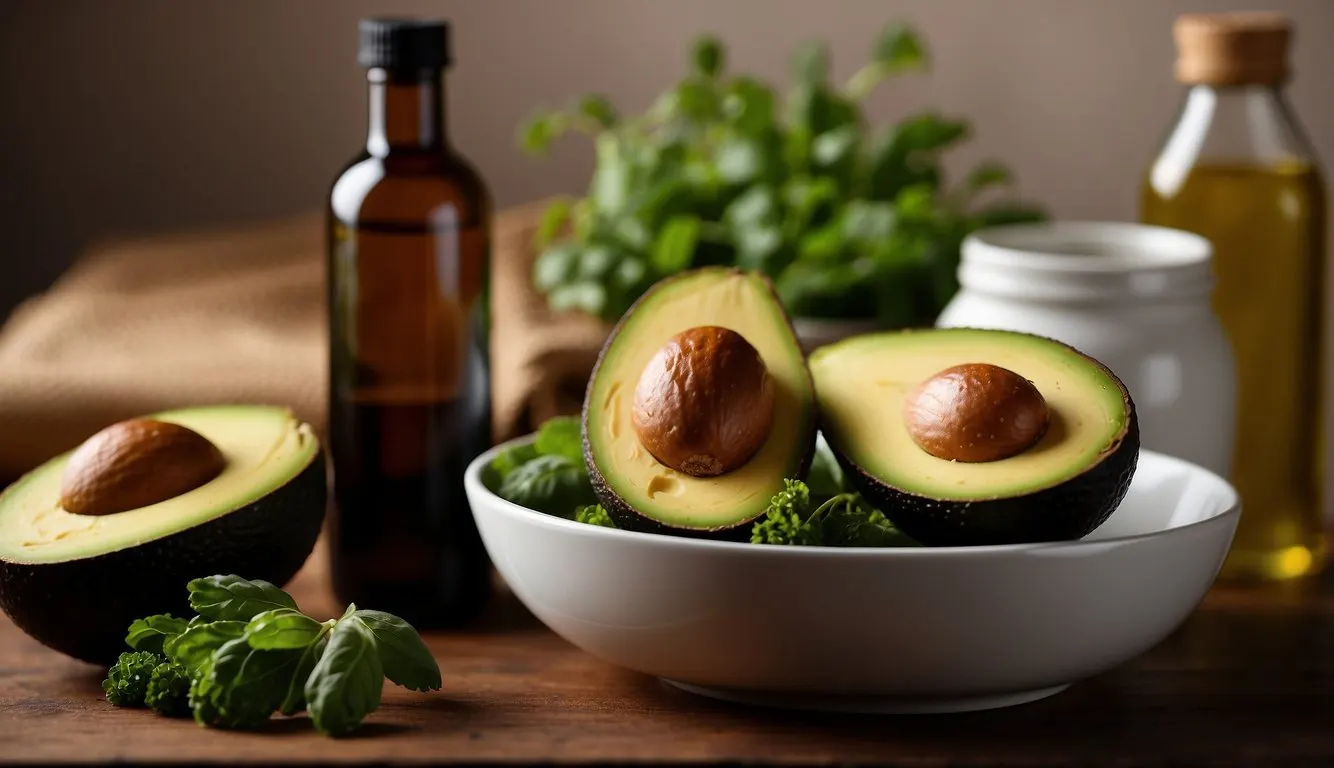
Refined avocado oil is made by extracting oil from the avocado fruit’s pulp. It’s packed with heart-healthy fats and boasts a high smoke point of about 520°F. This makes it an excellent substitute for vegetable oil in various cooking and baking scenarios.
To use refined avocado oil, simply replace the vegetable oil in your recipe with an equal amount of avocado oil. It’s a versatile oil suitable for frying, sautéing, and baking.
Ghee
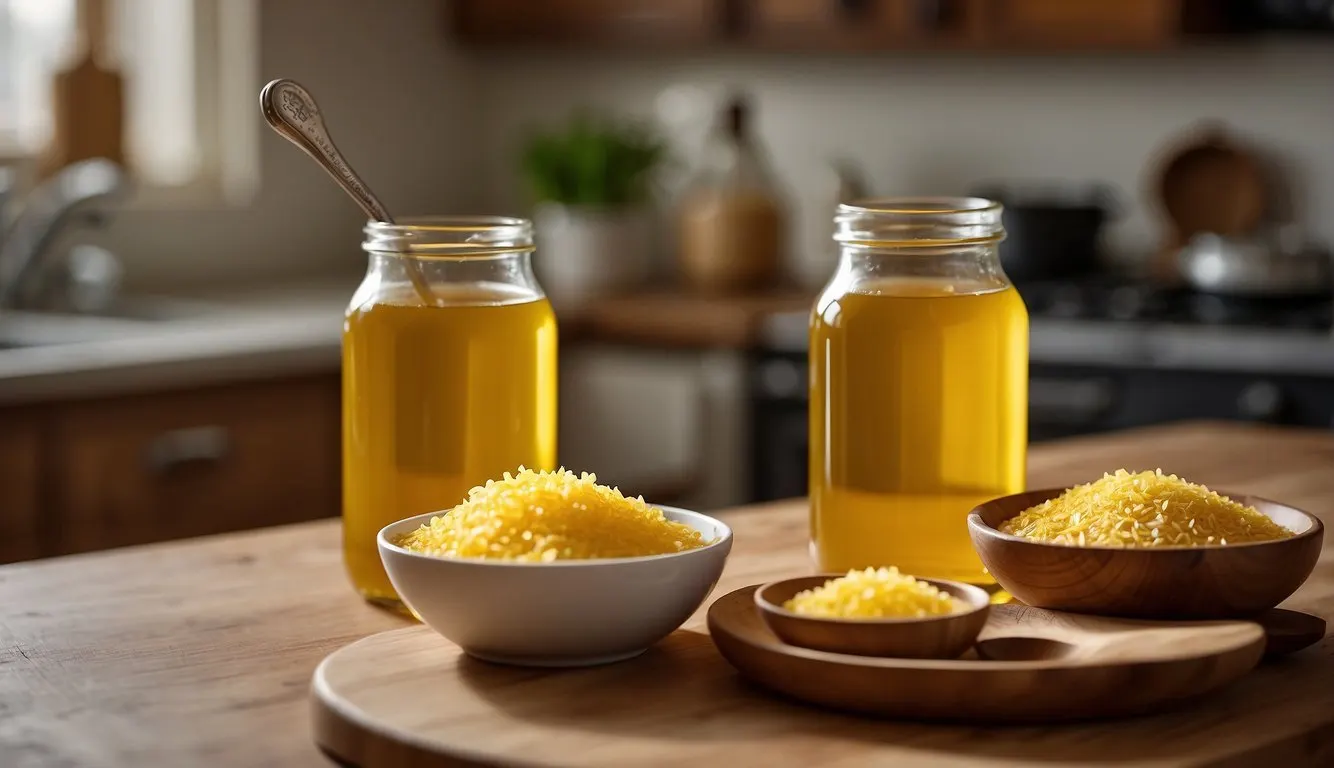
Ghee is a suitable substitute for vegetable oil in various cooking methods like sautéing, stir-frying, and baking. It offers a rich, nutty flavor and provides some health benefits. Opt for tasteless refined coconut oil if you’re not a fan of its distinct taste. Remember:
- Works well for sautéing, stir-frying, and baking
- Offers a nutty aroma and flavor
- Can use refined coconut oil for neutral taste
Grapeseed Oil
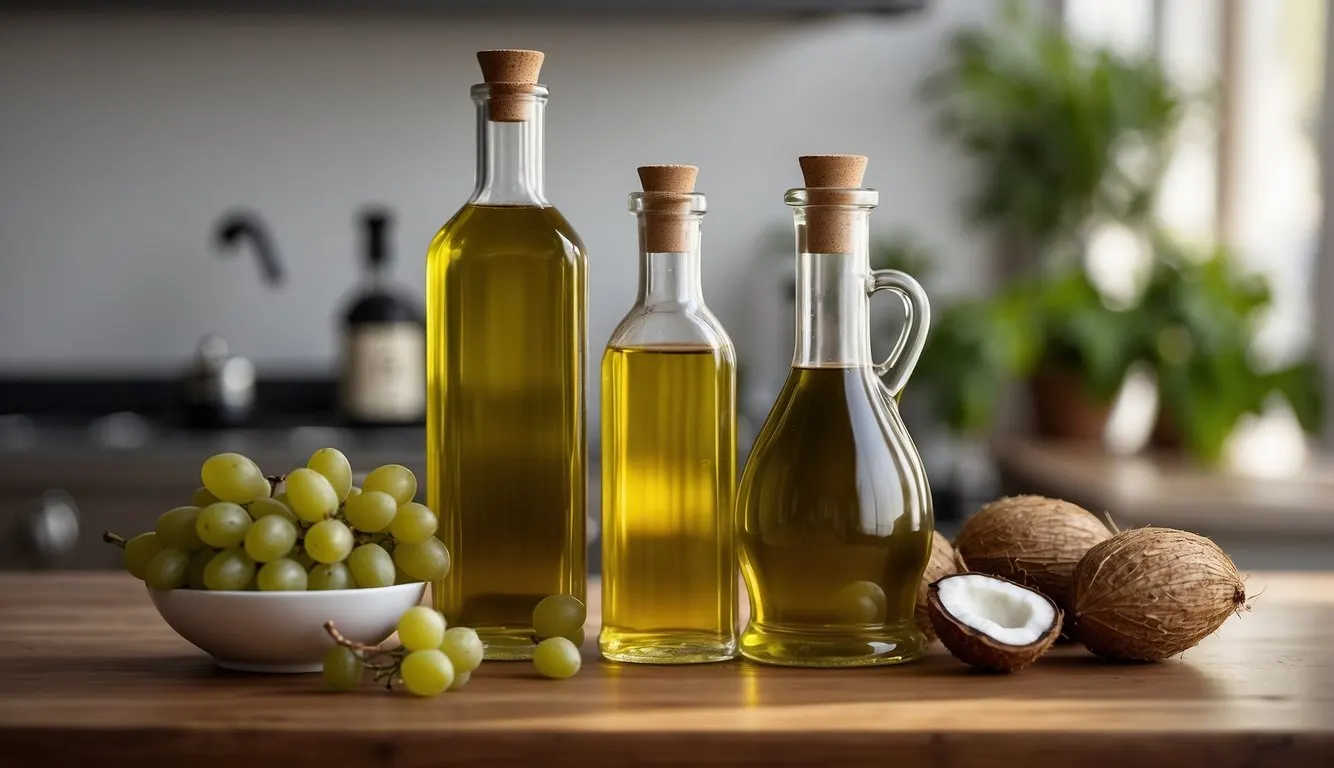
Grapeseed oil is a versatile substitute for vegetable oil in baking. High in antioxidants, it’s lower in calories and saturated fat than its counterpart. Some options to consider for replacing vegetable oil:
- Canola oil
- Olive oil
- Avocado oil
Switching to grapeseed oil offers a healthier alternative worth trying.
Sunflower Oil

Sunflower oil is a great substitute for vegetable oil. It’s light, mild in flavor, and versatile, working well in various dishes. Similar to vegetable oil, it’s extracted from seeds and performs well for frying and baking. To swap, use sunflower oil in equal amounts as vegetable oil in your recipes.
Frequently Asked Questions
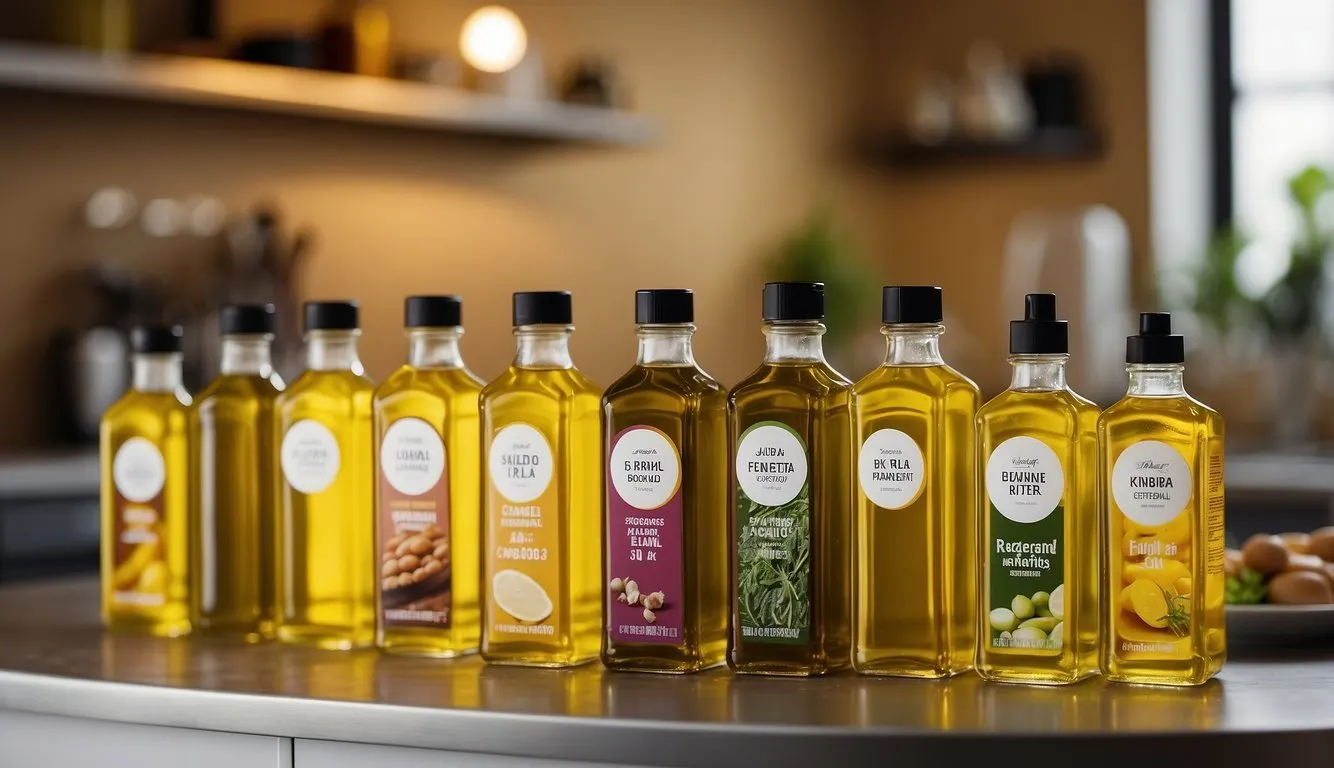
What can be used in place of vegetable oil for baking cakes?
You can use applesauce, Greek yogurt, or sour cream as alternatives to vegetable oil. These substitutes offer a moist, creamy texture and work well for cakes.
What are suitable substitutes for vegetable oil when making brownies?
Applesauce and melted butter make excellent substitutions for vegetable oil in brownie recipes. Use an equal amount of either ingredient to replace the oil.
Can butter be effectively used as a substitute for vegetable oil in recipes?
Yes, butter can be used as a substitute for vegetable oil in cooking and baking. Simply replace the oil with an equal amount of butter.
Which oils are appropriate replacements for vegetable oil in frying?
Try using canola, sunflower, peanut, or grapeseed oil as alternatives to vegetable oil whenever you’re frying. These oils have high smoke points and are ideal for frying.
What are healthy alternatives to vegetable oil for cooking?
Olive oil, avocado oil, and coconut oil are healthy substitutes for vegetable oil in cooking. They contain beneficial nutrients and provide unique flavors to your dishes.
How do you replace vegetable oil with butter in baking, including proportions?
To replace vegetable oil with butter in baking, use a 1:1 ratio. For example, if a recipe calls for 1 cup of vegetable oil, simply use 1 cup of melted butter instead.
Hi, I'm Benjamin. I love cooking, long walks, and my girlfriend! Here you’ll find simple and delicious recipes that you can make in 30 minutes or less.

